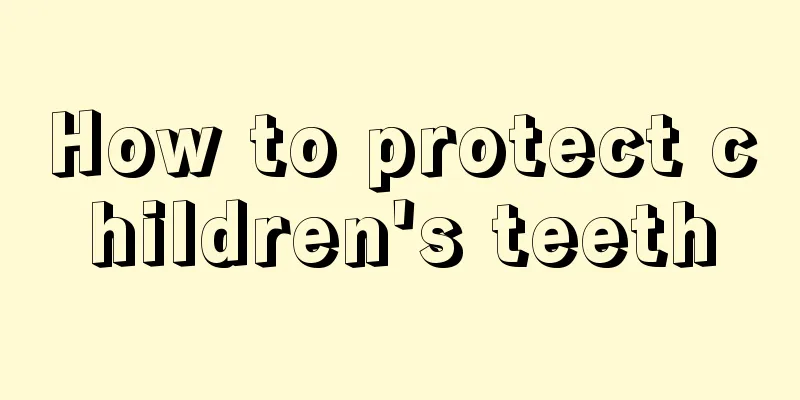Baby vaccination introduction

|
Many parents of newborns are first-time parents and do not know much about their baby’s vaccinations. Moreover, many experiences are passed down from our parents' generation, and we must also pay attention to the baby's vaccination. There are certain regulations on when and how often the baby should be vaccinated. Of course, parents should not panic too much. Here I will tell you about the precautions and time in this regard. 1. When should the baby get vaccinated? Babies should start getting preventive vaccinations after they are born. In the following period of time, especially before the age of one, they should basically get vaccinated every month. 2. What documents do I need to bring for vaccination and where can I get it? To get preventive vaccinations, you need to bring your baby's birth certificate, the parents' household registration booklet, marriage certificate, ID card, and the vaccination booklet given by the hospital where the child was born to the local hospital to register, and the doctor at the local hospital will then inform you of the specific arrangements for the injections. 3. What types of preventive vaccines are there? Do I need to get all the vaccines? Preventive vaccines include two categories: Category I vaccines (also known as scheduled vaccines) and Category II vaccines (also known as unscheduled vaccines). Among them, the first type of vaccine is mandatory for the state and is free of charge. There are a total of 10 vaccines in the second category, including HIB vaccine (Haemophilus influenzae type B combined vaccine), varicella vaccine, pneumonia vaccine, influenza vaccine, hepatitis A vaccine, rotavirus vaccine, hemorrhagic fever vaccine, rabies vaccine, bronchitis vaccine, and Lanjunjing. Whether the baby needs to be vaccinated with these vaccines is decided by the parents. There is a charge for this type of vaccine. 4.What should I pay attention to when getting vaccinated? (1) Usually, you should not eat hot food within 40 minutes after taking polio pills. (2) You are strictly prohibited from taking a bath on the day of DTP vaccination. If redness, swelling and hard scab appear at the injection site 4 hours later, you must apply hot compresses 3-5 times a day until the swelling subsides. (3) You should not take a bath on the day of hepatitis B vaccination. Please note that all vaccines should be postponed in case of acute illness. (4) After vaccination, if serious adverse reactions occur, such as collapse, shock, convulsions, encephalitis or encephalopathy, severe allergic reactions, subsequent injections or booster immunizations should not be given. (5) Children with neurological diseases, such as epilepsy or encephalopathy, should not be vaccinated with whole-cell pertussis vaccine, meningococcal vaccine, or Japanese encephalitis vaccine. (6) People with immunodeficiency or those using immunosuppressants should not be vaccinated with live vaccines. The above introduces the things you need to pay attention to when vaccinating your baby. I hope it will be helpful to all parents. Babies' bodies are not yet fully developed, so they need more attention and care from their parents. Therefore, parents must remember these precautions to avoid missing the time for their baby's vaccination. |
<<: What kind of medicine is good for infant skin itching
>>: What to do if your baby has spring diarrhea
Recommend
How to reduce swelling of child's hand
If a child has swollen hands, parents must unders...
Why does the child have a fever of 41 degrees?
After having children, we often worry about what ...
Why does my baby cough and retch?
Now, with the air pollution and the release of to...
What to do if your child has a stomachache and fever
During the growth process of young children, many...
What should I pay attention to when my child has blocked tear ducts?
It is normal for children to have blocked tear du...
What should we do if children have weak spleen and stomach?
When children are young, they may not like to eat...
Why is the stool green in a full-month baby?
Mom and Dad take care of their babies meticulousl...
What to do if your child has a fever, cough and vomiting
Some children are suffering from diseases, so the...
Two and a half year old baby cries all the time
Every change in the baby after birth is watched b...
What to do if your baby coughs in spring
Spring is the most beautiful season. As the weath...
How to correct overbite in children
Teeth are not only tools people use to chew food,...
When is the best time to bathe your baby in winter?
The baby's body resistance is limited, so it ...
What is the most nutritious food for babies?
What is the most nutritious food for babies is a ...
What to do if a 9-year-old girl has breast development
We all know that girls develop earlier than boys....
There is a small pimple on the baby's neck
The baby's skin is very fragile. Due to the b...









